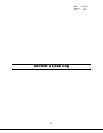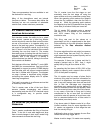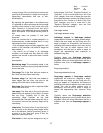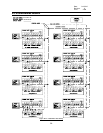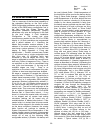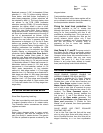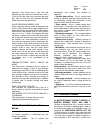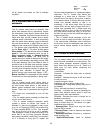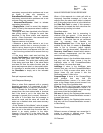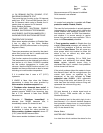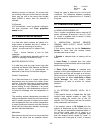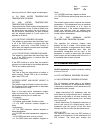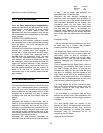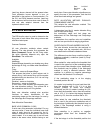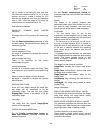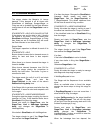Date: 8-4-2010
Revision: 0
Form: 2396
momentary communication problems and to act
on these if they are excessive. •
StatusReadFaultCounter: Used to tolerate
momentary communication problems and to act
on these if they are excessive.
• AbnormalFaultCounter: Used to tolerate
momentary abnormality
• StagingOrder: Used to record the stage-on
order, for use by the sequencer when it needs to
drop a stage.
• Storage for each item described in the Periodic
data polling section • Storage for each item
described in the Slave status read response
section • Slave Command - the command word
from the master to the slave.
Features common to all states
• Whenever a slave Sola device is not in an
expected condition then a recovery function is
used to set up timers to give a faulty slave: —
minimum time that it must appear to be OK, and
— limit how long a slave has to recover from any
error.
• If the slave status read was bad then the
slave's FaultCounter is incremented and if it to
reaches the fault value tries, then a recovery
action is invoked. This action does nothing else
if the status read was Bad. If the slave status
read was OK then the status function puts the
slave read response data in a slave status table.
If a transition to another state is indicated then
the SlaveState is simply set to the indicated
state.
Data poll response handling
Valid Response Message
When a slave Sola responds with a properly
formatted message it is examined to see if
Slave enable value is "Enable for Sola Master".
• If the "Enable for Sola Master" value is not
present then the slave status table is checked
and if the slave is not in the table then the
message is ignored (this is normal). However if
the slave is in the table then the message is
stored as usual and the slave will invoke the
action as a disabled slave and cause recovery
action to occur.
• If the "Enable for Sola Master" value is present
then the slave status table is checked and if the
slave is not in the table then the slave data is
stored in an empty position in the table.
However if the slave is in the table then the
message is stored as usual (this is the normal
case).
INVALID RESPONSE OR NO RESPONSE
When a Sola responds to a data poll with an
improperly formatted message or it does not
respond then the slave status table is checked
and: If the polled slave device is in the table then
the Data Poll Fault is noted. If this causes a
fault counter to exceed the fault value then the
SetRecovering handling is invoked.
SlaveState states
Recovering A slave that is recovering is
checked once per second. If the slave has
recovered the SlaveState table is changed to
Available. If the slave has not yet recovered
when its recovery timer reaches the
RecoveryTimeLimit then: If the slave is not
enabled for the Sola LL master its SlaveState
table is Set to Unknown (which logically
removes it from the slave table). Otherwise the
Recovery- LimitTimer is cleared which starts a
new recovery measurement and the slave
remains in recovery (indefinitely).
Available A slave in the Available state remains
that way until the Stager moves it into the
AddStage state or the ProcessSlaveStatus
action moves it to some other state.
AddStage A slave in the AddStage state
remains that way until the ProcessSlaveStatus
moves it to Firing or some other state, or the
Stager times out and moves it into the
Recovering state if it fails to fire.
SuspendStage A slave in the SuspendStage
state remains that way until the
ProcessSlaveStatus moves it to some other
state, or the Stager times out and moves it into
either the Firing or the Available state.
Firing A slave in the Firing state remains that
way until the ProcessSlaveStatus moves it to
some other state, or the Stager drops the stage
and moves it into the Available state.
OnLeave A slave in the OnLeave state remains
that way until the ProcessSlaveStatus moves it
to some other state.
Disabled A slave in the Disabled state remains
that way until the ProcessSlaveStatus moves it
to Recovering.
Demand and Priority
Different sources of demand can cause the LL
master to operate in different ways. These
sources have a priority relationship.
CH Demand
63



